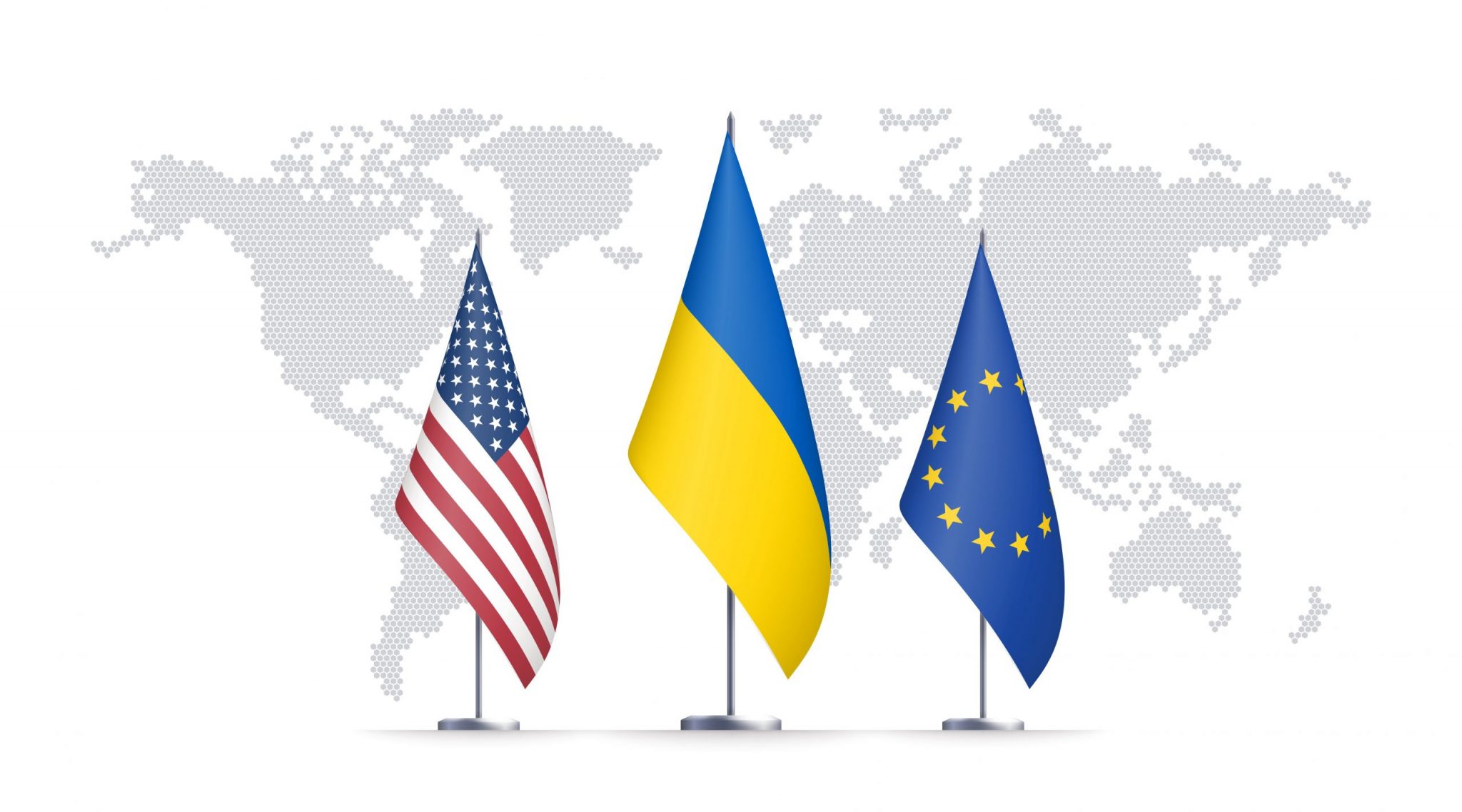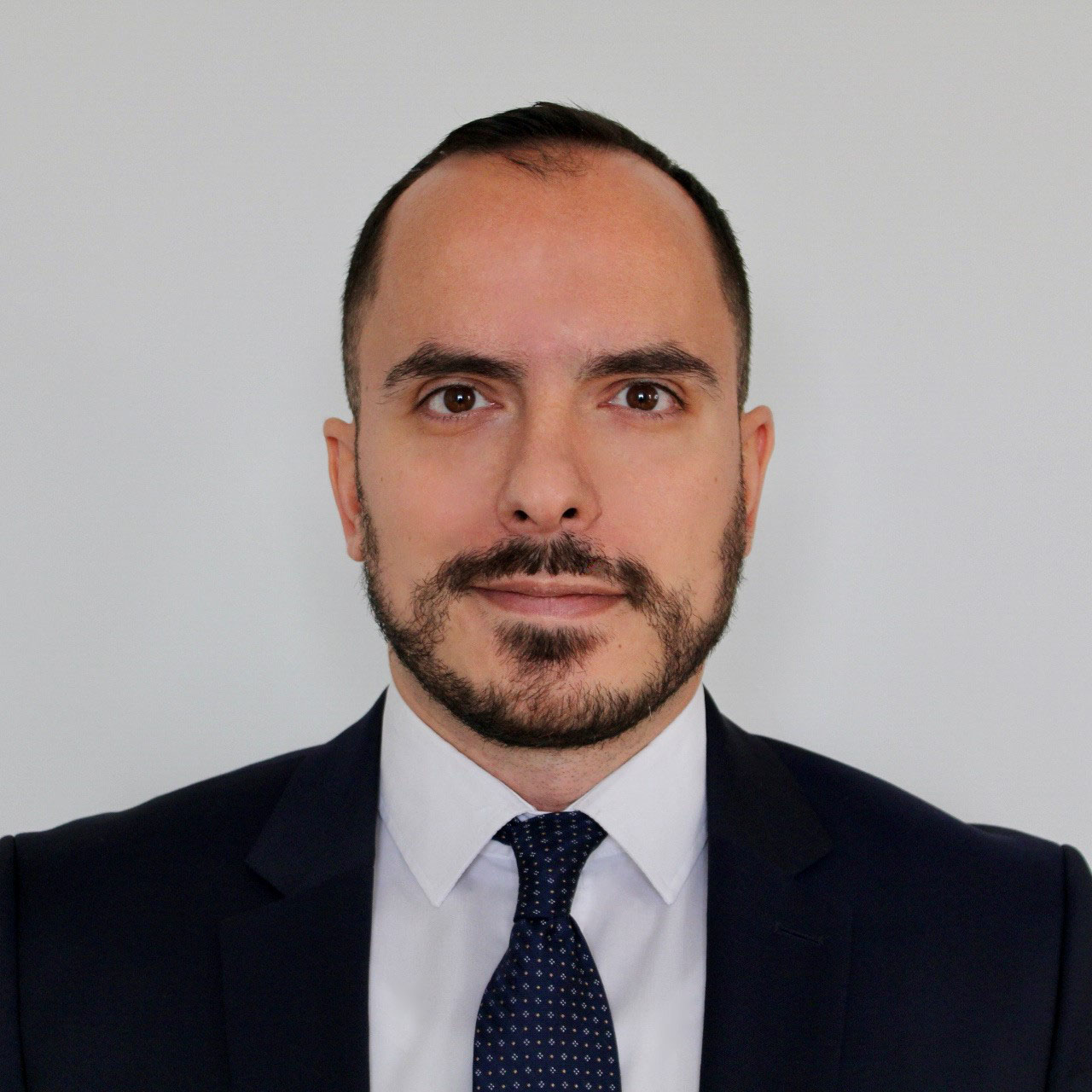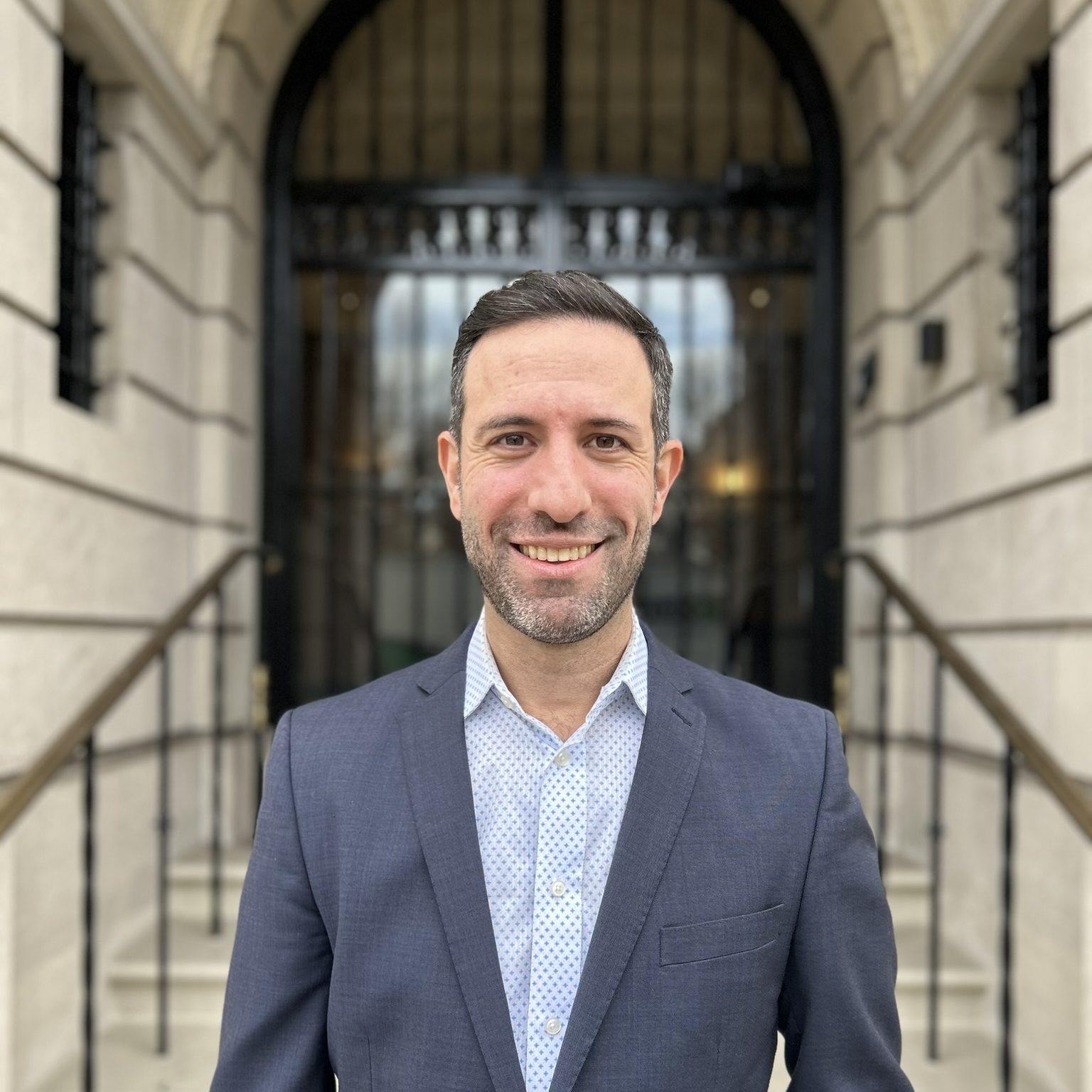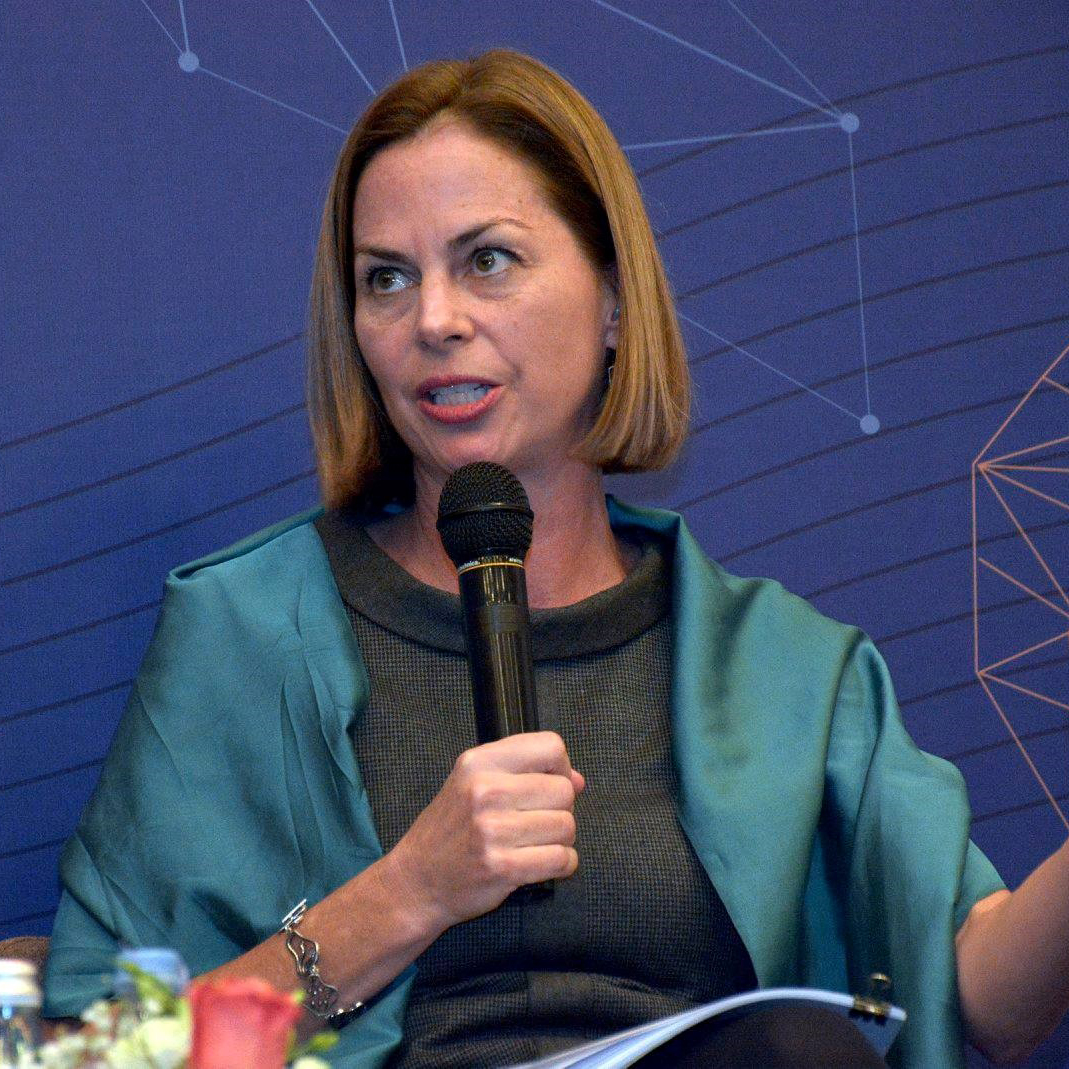At the start of the new year, we asked our experts to each put forth one recommendation that would strengthen democracy during a period of declining trust, emboldened autocrats, and war. Their answers touch on a variety of issues—from the war in Ukraine to the 2024 US presidential election and TikTok—but they all have a common theme: strengthening democracy is a proactive effort, and we must be vigilant, innovative, and work together to counter autocrats’ attempts to make the world less free.
Here are our experts’ policy recommendations to strengthen democracy in 2023.
Strengthening Democracy from Within
Laura Thornton, Senior Vice President for Democracy
On February 24, 2022, Russia’s brutal, illegal invasion of Ukraine delivered the wake-up call that the threat of autocratic takeover is not a theoretical or thought exercise, but a reality. Ukraine’s independence and democracy terrified [Russian President Vladimir] Putin, as it does other autocrats who are working hard to undermine our democracies and sow conflict. These malign actors may have less to fear as democratic backsliding continues to accelerate across the globe. We need immediate and robust investments and innovations in our democracies and to make the case to increasingly skeptical publics that it is the only form of government that delivers freedom, security, and justice. This is true for both new and old, fragile and advanced, rich and poor democracies.
The United States’ democracy was launched by the brilliance of our founders but is often rigidly anchored in the past. For a country that inspires the world with its innovation in all other aspects, we are surprisingly lacking creativity or evolution in our elections and governance practices. We stick by systems put in place centuries ago and not fit-for-purpose today. Other advanced democracies are experimenting in representation, constantly rethinking and improving their electoral practices, and creating space for more voices in governance. I would like to see the United States implement democratic reforms: experimenting in deliberative democracy and citizens assemblies; moving all election management and administration, including the drawing of constituencies, to non-partisan, independent election management bodies; adopting rank choice, proportional, and/or multi-member districts for elections; pursuing comprehensive political finance reform to ensure citizens’ equal voice in our governance; implementing national civic education in schools; conducting pilots exploring mandatory civil service; and adopting of a whole-of-society approach to building resilience to autocratic threats.
But democratic reform cannot happen internally, in isolation. Democrats across countries must work together to build collective resilience. First and foremost, this means defending Ukraine and defeating Russia, and building a Marshall Plan for Ukraine to rebuild and restore. It also requires democracies to stick together the way autocrats do. They are building alliances, sharing tactics, and providing support to one another to sow chaos and distrust in our democratic systems. Far-right, illiberal political movements are gaining momentum with shared narratives and conspiracy theories. Democrats must also support one another, exchanging best practice and learning, including bolstering those democrats in difficult places. I want our policymakers to increase investment in and create the space for this process, enhancing financial support for civil society, independent media, and human rights defenders everywhere, at home and abroad.
David Salvo, Managing Director of the Alliance for Securing Democracy
In 2023, presidential candidates will begin to declare their intention to run for the White House in 2024. Though less discussed today than in the 2016 election cycle, the stain of foreign interference in presidential elections has been part of the US political landscape for too long; one candidate, former President Donald Trump, even openly welcomed opposition research from foreign actors shortly before the subject of his first impeachment inquiry—his attempt to get the president of Ukraine to dig up dirt on Joe Biden—came to light. As candidates declare their intention to run or formally start their campaigns, they should publicly disavow taking advantage of any tangible benefits they might receive from foreign state-sponsored actors. This includes the obvious, like upholding campaign finance restrictions and fully upholding legal requirements that outlaw foreign contributions to campaigns.
But such a pledge should also include a rejection of any things of value a presidential campaign might directly or indirectly benefit from a foreign state-sponsored attempt to influence the election. For example, a campaign could benefit from a foreign intelligence service’s hack-and-leak operation against an opponent, or from the services of a foreign-based private company offering to run disinformation campaigns against an opponent on social media platforms (to be clear, such practices are reprehensible even if conducted by US-based actors). ASD at GMF’s Senior Fellow for Malign Finance Josh Rudolph argues that Congress should broaden the scope of “things of value” in the context of campaign finance law, but let’s not hold our breath that Congress will act accordingly during election season. Instead, candidates ought to be proactive in reassuring the public that they will conduct their campaigns ethically and legally, without any attempt to allow foreign actors to play even the slightest role in the 2024 election.
Rachael Dean Wilson, Managing Director of the Alliance for Securing Democracy and US Elections & Politics
For the last few years, the democracy conversation in the United States was largely one-sided, with Democrats making threats to US democracy a key campaign message in the midterm elections and, despite some notable exceptions, many Republicans either remaining silent or actively undermining trust in the system. This country is at its best when we have members in both parties striving to make US democracy stronger. In 2023, I want to see a pro-democracy agenda put forth by Republicans. Only when both sides have ideas for how to strengthen the US system is there potential for common ground and bipartisan, democracy-affirming policymaking.
Additionally, lawmakers on the federal and state level should take advantage of our decentralized elections to test new ideas that can help bolster faith in the process and disincentivize playing to the extremes of either party. This could include enacting policies that encourage experimentation with election process reforms such as ranked choice voting, final five voting, non-partisan redistricting commissions, and changes to voter ID and early voting policies.
David Levine, Elections Integrity Fellow
Conducting regular, genuine elections is a fundamental feature of democracy, but there may be occasions when elections are conducted in a manner that does not reflect the democratic will of the people. Every healthy democracy, including those in the United States and Europe, should have policies and procedures in place that detail as clearly as possible the circumstances under which election results can legitimately be overturned and subsequent elections can be held. This could include evidence of widespread electoral fraud, evidence of anomalies or irregularities that are so significant that they cast doubt on the legitimacy of the election results, and evidence that election interference efforts either altered the vote tallies or disenfranchised eligible voters on a scale large enough to affect the election’s outcome, not to mention non-election related reasons such as natural disasters and large-scale violence.
Conversely, every healthy democracy also should have language in place that clarifies when election results cannot be rejected. Disinformation, even by bad-faith autocrats, should not, in itself, invalidate an election. Disenfranchisement, as abominable as it is, should only invalidate an election when it’s large enough to affect the election’s outcome. In short, whether to overturn an election’s results shouldn’t hinge on whether an election is perfect—no election is—but on whether there is evidence to negate the validity of an election’s result.
Prioritizing Ukraine’s Post-War Reconstruction
Josh Rudolph, Senior Fellow for Malign Finance
With the return of a divided Congress, the US executive branch will have to take the lead on the most important policy changes in 2023. This will be a particularly important year to extend US leadership on support for Ukraine, from military assistance to reconstruction planning, too.
Specifically, the Biden administration should get the G7 to select a high-stature American to coordinate donor funding for Ukraine’s post-war reconstruction. Ideally, that person would be a former official who served in a Republican administration. A conservative appointee could speak to Congressional Republicans with authority about how reconstruction money is being spent with transparency and accountability on projects that are vitally important to US national security interests. The person should also have strong civil society and anti-corruption ties, bolstering both the credibility of their assurances to American taxpayers and the prospects of Ukraine’s EU accession. All this will be essential to getting Congress to appropriate additional funding for Ukraine in its fiscal year 2024 appropriations, including initial support for Ukraine’s reconstruction.
An important milestone in the process of planning Ukraine’s post-war recovery will be a dedicated conference in London on June 21-22, 2023. The two conferences on this topic in 2022 (one in Switzerland and one in Germany) were led by Ukraine and the Europeans, with the United States only sending relatively junior delegations that never appeared on stage. Now that the Europeans have taken the lead and the G7 has announced a donor coordination platform, it’s time for the Americans to join this international effort and ensure that it prioritizes critical issues such as anti-corruption reform.
Pursuing Policies to Outcompete Autocrats
Vassilis Ntousas, Head of European Operations
Both transatlantic partners are facing important elections in 2024, and, therefore, this year provides a formidable opportunity to become more clear-eyed regarding the challenges our democracies are facing, the bad actors—domestic and foreign—that aim to undermine our democratic institutions, and the kind of political answers these problems urgently need. But to have joint, coordinated action on this critical front, both partners need to work better and faster together and overcome distractions across different policy areas.
Finding a more equitable and therefore more sustainable equilibrium in supporting Ukraine and pushing back against Russia’s military aggression is a key example where Europe and the United States need to see eye-to-eye better. Urgently remedying unforced errors that can risk damaging and distracting the transatlantic partnership, such as the rift that was created following the passing of the Inflation Reduction Act, is another key such example.
While important in their own right, disagreements like these hamper transatlantic efforts to make the relationship truly strategic and divert energy from the common autocratic challenges both partners face. And it is these important challenges, many of which are tightly linked to the quality of our democracy and democracies, that should be at the very center of transatlantic attention.
Bryce Barros, China Affairs Analyst
Competition between China and the United States is one of the few issues that unite Republican and Democratic lawmakers in a deeply politically polarized environment. Yet, as Central Intelligence Director Bill Burns pointed out last year, his agency does not have enough China experts. This year, Congress should use its oversight responsibilities to identify how executive branch agencies and departments are meeting or falling short of goals to hire more personnel with China expertise.
The new Republican-led US House Select Committee on China, chaired by Rep. Mike Gallagher (R-WI), has an opportunity to draw attention to the challenges that impede the executive branch from hiring individuals with China expertise. For example, many aspiring China specialists have spent time in China, Hong Kong, or Taiwan through US government initiatives like the National Security Education Program, Peace Corps, or Fulbright, but upon returning to the United States, they face barriers to obtaining security clearances promptly due to abundant foreign contacts or significant time in-country. The China Select Committee should release a report detailing how many executive branch personnel have expertise in China and how many new hires each agency or department needs to address China-related issues. This report should also highlight the most significant barriers preventing the executive branch from hiring more individuals with China-related expertise and provide recommendations for how to remedy these issues.
Rep. Gallagher and the China Select Committee have a unique opportunity to address these barriers preventing hard-working Americans from public service that focuses on our country’s most important bilateral relationship. After all, personnel is policy.
Etienne Soula, Research Analyst
To strengthen democracy in 2023, Europe and the United States should allocate more of their attention and resources to the Global South. Europe’s understandable concern with Russia’s ongoing invasion in Ukraine and the United States’ single-minded focus on its competition with China have led both regions to neglect countries that are home to the vast majority of the world’s population. The rules-based world order cannot be democratic without a majority supporting it.
Whether out of spite or out of longer-term strategic thinking, authoritarian regimes in Moscow and Beijing have recognized the importance of the Global South and are devoting ever growing attention to countries in Africa, Latin America, and beyond. Russia is stepping up its information warfare in Africa, while Beijing is building upon its infrastructure investments across the globe to actively promote alternative governance forums that exclude G7 countries and their allies. President [Joe] Biden’s announcements at the recent US-Africa Leaders Summit and the European Union’s reported plans to re-energize its own infrastructure plan, Global Gateway, are steps in the right direction. Established democracies must ensure they sustain and buttress those efforts in coming months.
Regulating Big Tech
Bret Schafer, Senior Fellow
The gulf between the political left and right in the United States on issues related to tech regulation has created an environment in which there appears to be little hope of advancing any sweeping federal legislation like the EU’s Digital Services Act. However, a priority for those on both sides of the political aisle should be the passage of legislation that demands greater transparency from tech companies, including access to data for independent researchers and third-party auditors. This is especially important considering that Meta is planning to shut down CrowdTangle, Google has generally been unwilling to grant researchers access to any meaningful internal data, and Twitter is in complete disarray. With the companies pulling back on voluntary transparency measures, regulation is needed to compel major tech companies to share the kind of data necessary to answer questions like whether the companies’ content moderation decisions are politically biased or if their recommendation algorithms are promoting illegal content.
But with transparency requirements, there is also the need for regulatory oversight. Without a robust regulatory body that is able to define standards and enforce rules, transparency requirements would likely result in meaningless disclosures and lax compliance. It is therefore essential, both in the United States and Europe, to create regulatory bodies with the ability to effectively navigate complex questions around data access and formats and to enforce decisions once made—otherwise, regulation risks becoming an empty exercise.
Lindsay Gorman, Senior Fellow for Emerging Technologies
In 2023, we may finally see a partial resolution to the four-year-old saga over TikTok’s Chinese ownership and the unacceptable window of authoritarian influence it creates. For years, now, the Committee on Foreign Investment in the United States (CFIUS) has reportedly been investigating and negotiating with TikTok over rightful concerns that the platform could make heavily collected data on American citizens available to the Chinese one-party state. As ASD at GMF has noted since 2019, these concerns extend to the ability of pro-Chinese Communist Party (CCP) actors within Bytedance to influence the amount and the nature of content shown to overseas users through the “For You” algorithm.
Washington is starting to wake up to this influence threat. And both states and the federal government have put forward proposals to ban the app on government devices. Meanwhile, European data regulators have also investigated the platform. As our work, covered in the Washington Post, reported last fall, nearly 30 percent of major-party candidates in November’s midterm Senate races and one-fifth of major-party House candidates had TikTok accounts. It’s clear now that the app is used for more than lip syncs and dance videos—in a democracy, political and issue discourse is inescapable.
CFIUS needs to resolve the now-recognized national security concerns posed by TikTok’s ownership, or Congress is likely to get involved. The United States, its European partners, and its democratic allies worldwide should force a sale of the viral app to a company based in a non-authoritarian country.
Joseph Bodnar, Research Analyst
In 2023, I’d like to see federal legislation that requires social media platforms to be more transparent. Right now, researchers largely rely on the goodwill of platforms to access data, and we’ve seen companies like Facebook shutdown studies to quash scrutiny. That’s not sustainable. Policymakers need to understand Big Tech to craft effective legislation, and giving qualified researchers a clear look at what is happening on social media platforms is the first step in that process. Added transparency could also help rebuild public trust in the information environment since people would better understand why they’re seeing what they’re seeing.
The views expressed in GMF publications and commentary are the views of the author alone.















